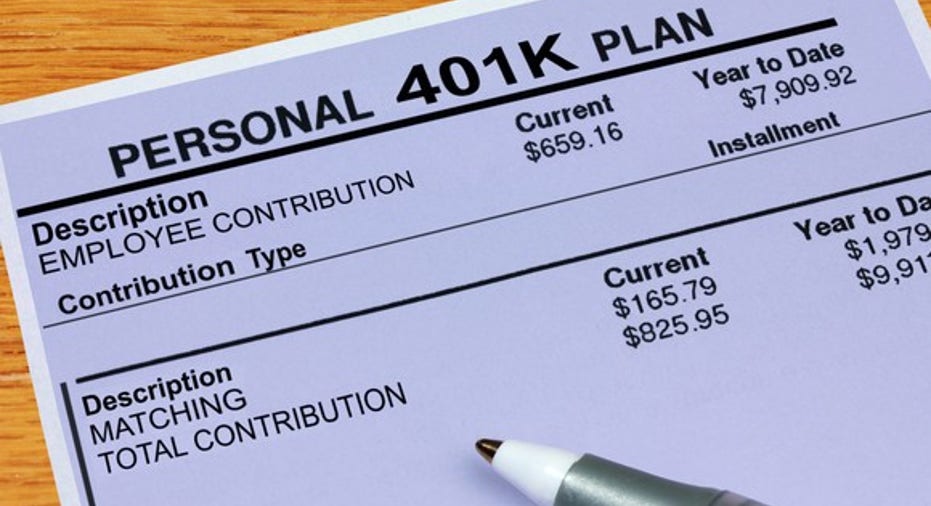Firms Curb Raids on 401(k)s

American companies are trying to stop employees from raiding their 401(k)s, in an attempt to ensure that older workers can afford to retire and make room for younger, less-expensive hires.
Employers of all types -- from Home Depot to a mortgage lender -- are taking steps to better inform workers of the financial implications of borrowing from their retirement accounts and pulling the money out when they leave jobs.
Tapping or pocketing retirement funds early, known in the industry as leakage, threatens to reduce the wealth in U.S. retirement accounts by about 25% when the lost annual savings are compounded over 30 years, according to an analysis by economists at Boston College's Center for Retirement Research.
"Employers have done a lot to encourage people to save in 401(k) plans, such as automatically enrolling them. But there is a growing recognition that if the money isn't staying in the system, the objective of helping employees reach their retirement goals isn't being met," says Lori Lucas, defined-contribution practice leader at investment-consulting firm Callan Associates Inc.
Movement Mortgage LLC, a Fort Mill, S.C.-based mortgage lender with 4,200 employees, this year started requiring workers who initiate a 401(k) loan to consult with a financial counselor first, at the company's expense.
Movement Mortgage aims to help employees get "a game plan in place for financial success," said Chief Executive Casey Crawford. "We want them to stop looking at their 401(k) like a cash register."
Employees who grew accustomed to borrowing from their 401(k)s during the recession are tempted by the risingbalances in these types of plans, which currently hold $7 trillion, up from $4.2 trillion in 2009, experts say.
"People are getting statements telling them they have $5,000 in this account and they are asking themselves, 'How can I get my hands on this money?'" said Rob Austin, director of retirement research at Aon Hewitt, a human-resources consulting firm.
Home Depot in recent years launched several initiatives aimed at "getting people out of the habit of going from one [401(k)] loan to the next," says director of benefits Don Buben.
The home-improvement chain recently started making employees wait at least 90 days after paying off one 401(k) loan before initiating another. Workers are also encouraged to pay off their 401(k) loan balances early.
Since 2014, the total number of outstanding loans at Home Depot has declined by 17%, the company said.
When applying for a 401(k) loan online, Home Depot employees automatically get a pop-up notice that includes an estimate of how much the loan would reduce the employee's savings by retirement age.
"Most people don't realize the impact of taking a loan," Mr. Buben said, adding that some borrowers reduce their 401(k) contributions while repaying their loans.
Other companies are taking different steps, including encouraging new employees to roll existing retirement savings from former employers' plans into their 401(k) plans. Some are preventing employees from borrowing money the employer contributed, and others are helping employees amass emergency savings or tap funds other than their 401(k)s.
Redner's Markets, which operates grocery and convenience stores in Maryland, Delaware and Pennsylvania, is offering a low-cost loan outside the 401(k) plan as an alternative for would-be borrowers.
ABG Retirement Plan Services, a Peoria, Ill., 401(k) recordkeeper and administrator, plans to soon start offering its employees the option to contribute -- via payroll deductions -- to an emergency savings account linked to its 401(k) plan. The company plans to offer its clients the feature this summer.
A typical 401(k) account offers participants several ways to tap their savings before retirement.
On average, about 30% to 40% of people leaving jobs elect to cash out their accounts and pay taxes and often penalties rather than leave the money or transfer it to another tax-advantaged retirement plan, according to recordkeepers and economists.
Most plans also allow people to pull out their savings -- after paying taxes and typically a penalty -- for reasons including buying a home, preventing foreclosure, and paying medical bills and college expenses, something relatively few participants do annually. These are known as hardship distributions and the employee must demonstrate an "immediate and heavy financial need," according to the Internal Revenue Service.
Employees can also generally choose to borrow up to half of their 401(k) balance or $50,000, whichever is less, without having to state a reason. According to the Employee Benefit Research Institute, a nonprofit research group, 87% of participants are in plans that let them take 401(k) loans.
About a fifth of 401(k) participants with access to 401(k) loans take them, according to the Investment Company Institute, a mutual-fund industry trade group. While most 401(k) borrowers repay themselves with interest, about 10% default on about $5 billion a year, says Olivia Mitchell, an economist at the University of Pennsylvania's Wharton School.
"401(k) plan leakage amounts to a worryingly large sum of money that threatens to undermine retirement security," says Jake Spiegel, senior research analyst at research firm Morningstar Inc. His calculations show that employees pulled $68 billion from their 401(k) accounts taking loans and cashing out when changing jobs in 2013, up from $36 billion they withdrew in 2004.
Write to Anne Tergesen at anne.tergesen@wsj.com



















